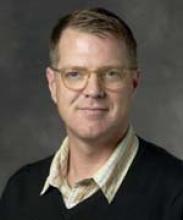What Is It
America's elite colleges and universities spend millions of dollars to generate thousands of applicants, the vast majority of whom they reject. High school students – and their parents – work hard to gain entry to such institutions, and can be devastated by the rejection. Is there a purpose to this rat race? What values are implicit in the American college admissions process? John and Ken offer admission to Mitchell Stevens from Stanford's School of Education, author of Creating A Class: College Admissions and the Education of Elites, for a program recorded with an audience of high school students in Palo Alto, California.
Listening Notes
To kick off the show, Ken and John paint the scene of what college admissions are like today. They cite frightening statistics about the selectivity of elite schools and note that the pressure to be accepted placed on high schoolers is neither good nor healthy. John describes the vicious cycle in which the large number of applicants to a school leads to increased selectivity, which leads to increased prestige, which leads to a larger number of applicants for the following year. Ken wonders what is achieved by subjecting teenagers to this in the first place.
After his introduction, Mitchell Stevens answers John’s question about what has changed in college admissions. The current character of the economy makes selective colleges and universities like Stanford not just intense to get into, but intense generally. A college or university, Mitchell explains, is like a nightclub: the more people it turns away, the more desirable it becomes.
Ken wonders whether the prestige of a school even matters. Do elite schools deliver something to their students that can’t be gotten elsewhere? Mitchell answers that it’s true that prestige matters and lists three reasons. First of all, graduating from an elite college or university pre-sorts you in applicant pools for the rest of your life. Second of all, it creates a web of relationships that you can cultivate for the rest of your life. And thirdly, it affects who you’re likely to marry or remarry. From an educational angle, John adds that he doesn’t think it matters much unless you have ambitious research interests; undergraduates should focus on the quality of teaching, not the prestige of a university, because that is the factor in their choice that they will be most affected by.
The discussions sparked by audience questions range from consideration for the ethics of affirmative action to the common yet vague criterion of leadership potential. John concludes the show with a hopeful word of a advice. High schoolers shouldn’t be discouraged by rejection; students can have fun at college anywhere. Ken, on a more serious note, chimes in that a wonderful fact about America is that there are so many great universities. Society shouldn’t be so obsessed by the marginal utility granted by a school’s prestige.
- Roving Philosophical Reporter (Seek to 5:40) : Caitlin Esch learns about the high-pressure environment for high-achieving high school students by speaking with Lisa Dimarino, a marriage and family therapist in Palo Alto.
- 60-Second Philosopher (Seek to 48:58) : After reflection on how things were different when he was a boy, Ian Shoales counsels students that their only hope in the sinking job market is to, somehow, get rich quick.




Comments (4)
IrmaC
Monday, February 19, 2024 -- 12:37 AM
The intense competition inThe intense competition in college admissions can indeed feel like a daunting rat race, leaving many students and parents feeling disheartened. As we ponder the values implicit in this process, it's also valuable to reflect on personal experiences that shape our understanding of success and fulfillment. Take a moment to explore this reflective writing on life experiences: https://studymoose.com/free-essays/my-life-experience My Life Experience. Just as the college admissions process prompts us to question societal norms, delving into personal narratives can offer insight into what truly matters in life. Let's strive for a balance between academic achievement and personal growth, ensuring that each student's journey is guided by their own unique path to success.
Susan_Batten
Monday, April 22, 2024 -- 12:49 AM
I remember how worried I wasI remember how worried I was when I entered college. Fortunately, everything went well and now I am studying there intensively. And thanks to the site https://www.linkedin.com/pulse/paper24-review-worth-your-money-2024-william-nunez-ra6af/ I learned how I can save my time and complete any of the most difficult tasks. I found the service and now I’m not afraid that I won’t be able to cope up with some task like an essay or thesis.
davidwilly
Thursday, June 27, 2024 -- 3:28 AM
To pass the MCD-Level-1 exam,To pass the MCD-Level-1 exam, you need to familiarize yourself with the types of questions you might encounter. This is where MuleSoft MCD-Level-1 Exam Questions pdf come into play. Practice with these questions to get a feel for the exam format and difficulty level.
Ning
Friday, September 20, 2024 -- 3:50 AM
Deconstructing the CollegeDeconstructing the College Admissions Rat Race explores the intense pressure students face in securing college placements, often driven by a competitive culture that prioritizes test scores, extracurriculars, and prestige over genuine learning and personal growth. This rat race can lead to stress and anxiety, detracting from the overall educational experience. For students in environments like atlanta public schools spring break can serve as a vital respite, allowing them to recharge and reflect on their ambitions beyond the relentless competition. Encouraging a more balanced approach to education and admissions can help foster a healthier mindset for students as they navigate their future paths.